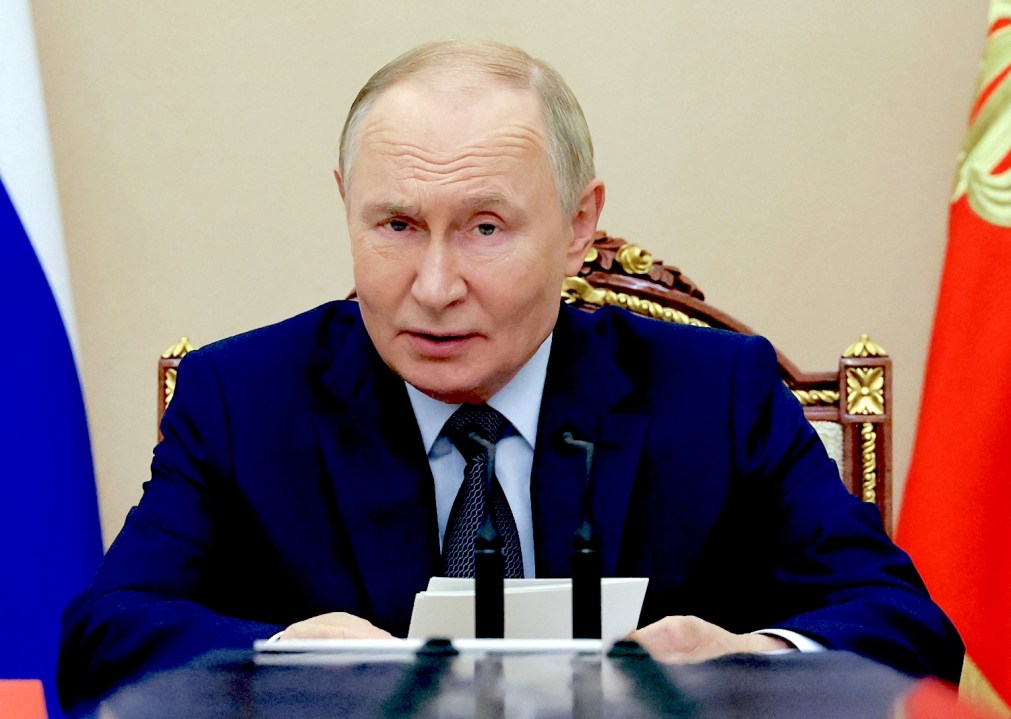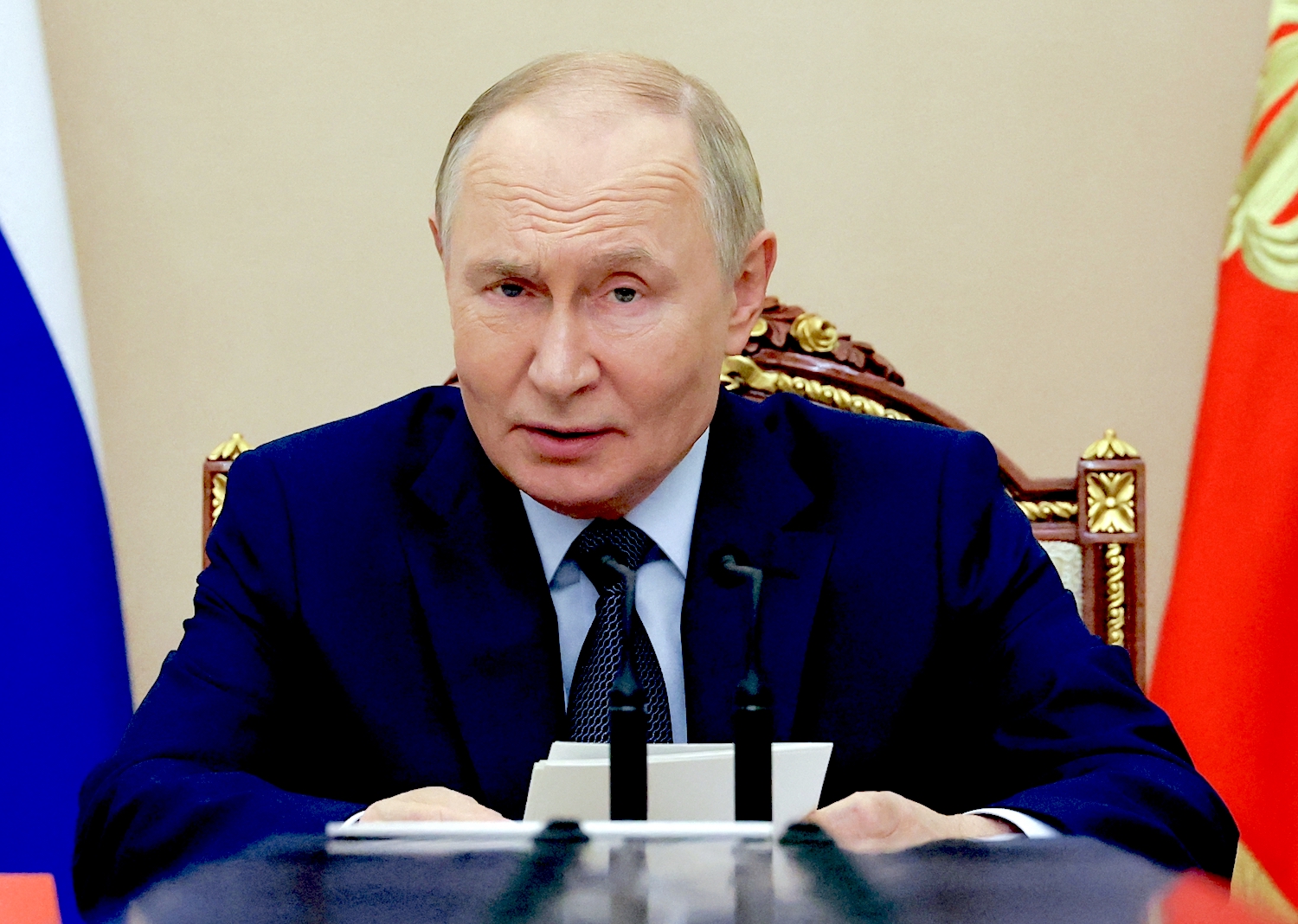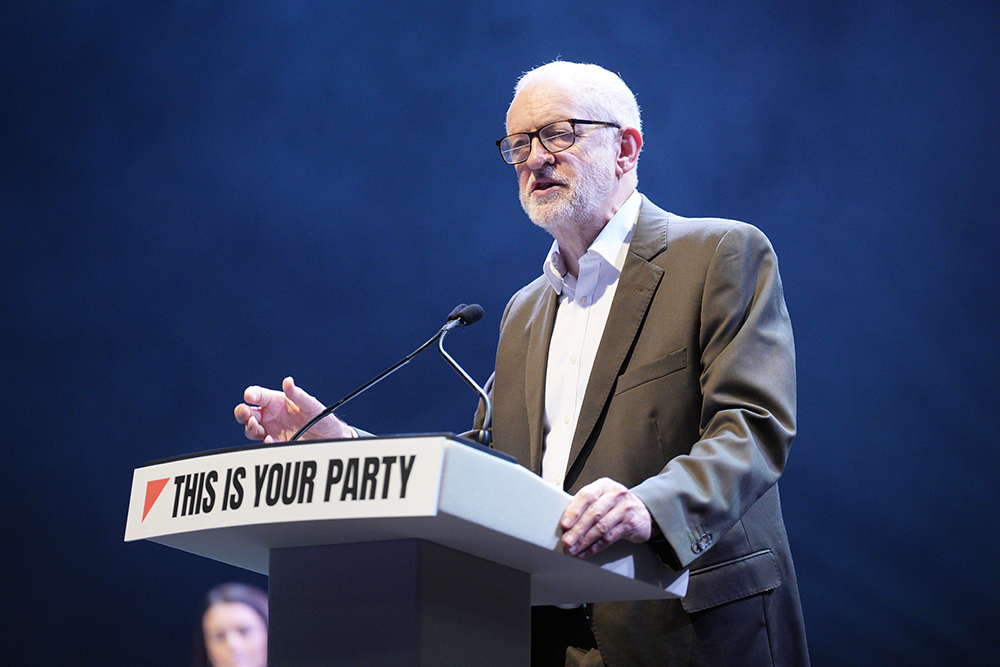What happens when you boil a frog? It doesn’t notice the warming water until it is too late. According to Margus Tsahkna, Estonia’s foreign minister, Russia is boiling Nato like a frog. He fears that Vladimir Putin’s provocations of Nato (none of which on their own would necessitate a military response) will become increasingly and slowly severe, testing and ultimately undermining Nato’s defences. There is force to his argument.
Two weeks ago, Polish air defences shot down Russian drones. Last Friday, Russian jets violated Estonian airspace and forced Nato planes to scramble. More drones, operated by a ‘capable actor’, according to a Danish Police spokesman, flew over Norwegian and Danish airports earlier this week, forcing their closure. This coincided with a cyber attack on Brussels and other airports, causing them to suspend operations. We are dealing with the ongoing consequences of the cyber attack on Jaguar Land Rover, which has so far shuttered their factories for four weeks and forced the government to consider a furlough scheme, or guaranteed government contracts, for that company’s many sub-contractors, who might otherwise go out of business.
Is this Vladimir Putin in his most ruthless, ‘Ming the Merciless’ mode, orchestrating a veritable whirlwind, to disrupt, distract and deceive the West? Or is this just a series of essentially coincidental events, which the West, absurdly paranoid about legitimate Russian interests, apophenically link? Are we at war or going to war? Does it matter?
The Russian Air Force routinely fails to submit flight plans, turn-on aircraft transponders, or communicate with air traffic control, so in some ways there is nothing new about the incursion into Estonia. This is Russia’s rule-breaking norm. By Putin’s reckoning, if the MiG 31 jets strayed from international airspace on what was a routine flight to the Kaliningrad exclave, this was at worst a ‘pilot error’. Similarly, according to Moscow’s client state, Belarus, the drones that appeared in Poland were flying over Belarussian airspace until Ukrainian jamming interfered with their navigation systems and they then scattered. Unfortunately this affected Poland. As ever, Russia, led by its Chekist president, has ‘plausibly deniable’, if not exactly innocent, explanations for each individual act. Those inclined to give credence to Moscow’s utterances can cleave to those. In short: ‘Nothing to see here.’
Western officials unsurprisingly see the recent events differently. Flemming Drejer, the director of operations for Denmark’s security service, described the recent series of events ‘not necessarily an attack on us but rather [an attempt to] stress us out and see how far we react.’ There is truth in that. The Russians will have noted how quick Nato’s reactions are; what systems were used, and crucially, which weren’t, as well as what the political/military reaction, especially that of President Trump, has been.
That still leaves the bigger question: so what? What is the purpose of Putin’s campaign of disruption, assuming that it is what we are up against? It fits with a Russian military doctrinal principle of war, maskirovka, which is often translated as deception but which can cover anything from camouflage to ‘false flag’ operations. More recent Russian thinking suggests that the true purpose of maskirovka, certainly at the strategic level, is to force or persuade one’s opponent to do your will. In terms of the Ukraine conflict, the Russian intent is to dissuade Nato countries from decisively intervening and, arguably, Putin has succeeded. Biden’s support was derided as ‘one dollar too little; one day too late’, while President Trump refers to Nato not as a defence partnership in which the USA is intimately integrated, but as an essentially European organisation that now needs to pick up the US slack. Article 4 consultations notwithstanding, there are no signs of the US coming to Europe’s aid in dealing with Putin’s brazen provocations. The Russian leader will hope that Europe, distracted by the latest drone, aircraft incursion or cyber attack, may not mobilise the resources to support Ukraine adequately.
Where and when Putin might strike next is moot
President Zelensky discerns a bigger threat still. In his speech to the UN General Assembly this week, he warned that ‘Putin was intent on driving the war forward, wider and deeper… to continue this war by expanding it… and now Russian drones are flying across Europe.’ This stark warning may be right. We know that Putin believes that the collapse of the Soviet Union was not just a disaster for Russia but a world-historic, civilisational, disaster, allowing what he sees as the deceitful, decadent, secular and materialistic West to triumph. He seeks to redress this by re-establishing what he sees as the ‘natural order’, giving Russia its distinct ‘sphere of influence’ and with it, ‘The Third Rome’, properly protected. His toxic reaction to any suggestion that Ukraine can be part of Nato then makes perfect sense.
Where and when Putin might strike next is moot. Moldova faces elections this Sunday that its president has described as the most important in its history; pro-Russian bribery and corruption is widespread and, if it should fall to the Patriotic Bloc, it will align itself with Russia, making life extremely difficult for Ukraine and Romania, with whom it shares borders. Further north, Nato has long worried about the Suwalki Gap, which divides Kaliningrad from Belarus, and some form of adventurism in the Baltics is also possible. Despite their enthusiastic and courageous desire to defend themselves, their populations are small and all have a large Russian minority; a source of both internal dissension and a potential casus belli for ‘little green men’-type invasions to ‘protect’ them, similar to the attack on Ukraine in 2014. Whether that would be regarded as breaching the Article 5 threshold is almost impossible to tell. Would Spain, with only 1.4 per cent of its GDP spent on defence, send forces? Would Hungary and Slovakia risk losing their direct fuel supplies? The Russians doubt that Article 5 still holds good, and with reason, given even quondam ‘military powers’ such as Britain and France have been so slow to increase their defence expenditure and reverse years of neglectful parsimony.
Whether we are being boiled or not, we are not frogs. Nato countries can and should act. Defence, security and diplomatic cuts need reversing at pace. Our ties to Russia for fuel and to China, Russia’s partner in the ‘axis of upheaval’, need cutting. This will not be easy, but the thought of the alternative, Europe as a sort of geopolitical cuisses de grenouille, for a Chinese/Russian banquet, is truly unpalatable.








Comments